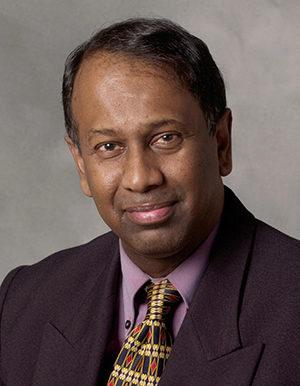
- This event has passed.
MEAM Seminar: “Cardiovascular Engineering – A ‘Personal’ Journey from Bench to Bedside”
April 16, 2024 at 10:00 AM - 11:30 AM
Over the past few decades, significant contributions have been made by engineers to healthcare. The successful translation of fundamental engineering concepts has helped improve patient care and diagnosis. This impact has been particularly evident in the field of cardiovascular medicine where the roles of fluid and solid mechanics, and imaging are critical. In ~45 years of pioneering research, Professor Ajit Yoganathan’s Cardiovascular Fluid Mechanics Laboratory at the Georgia Institute of Technology & Emory University, has been in the vanguard of this movement: advancing knowledge and technology in native and replacement heart valves, cardiovascular diagnostic techniques, and pediatric surgical/interventional planning. Using state-of-the-art fluid dynamic measurement techniques, Dr. Yoganathan and his group have developed methods to enable the optimization of replacement heart valve designs. Novel techniques in the assessment of native heart valve function have provided clinicians with improved tools to assess disease severity and helped identify effective treatment options.
For the treatment of congenital heart defects, the development of novel computational modeling tools to simulate surgical procedures and their fluid dynamics outcomes have provided clinicians with new ways to plan for treatments for individual patients to increase the probability of success. Combined, these advances have helped bridge the lab bench to the patient’s bedside/bassinet and integrate engineering science with the art of medicine.

Ajit Yoganathan
Regents' Professor Emeritus, Wallace H. Coulter Distinguished Faculty Chair in Biomedical Engineering, Georgia Institute of Technology
For over 45 years Dr. Ajit Yoganathan has been a pioneer in basic and translational cardiovascular research, especially experimental and computational fluid mechanics as it pertains to artificial heart valves, the whole heart, and congenital heart diseases. His work involves the use of optical techniques such as laser Doppler velocimetry, digital particle image velocimetry, and clinical tools such as cardiac ultrasound and magnetic resonance imaging to non-invasively study and quantify blood flow patterns and parameters in the cardiovascular system, both on the bench and in vivo. In his effort to take an interdisciplinary and translational approach to his research, Dr. Yoganathan has established collaborations with clinicians, scientists, and industry professionals world-wide and has played an important role in the development of U.S. and international standards for cardiovascular devices as Chair of the Cardiovascular Sub-Committee (SC2), International Standards Organization Technical Committee (TC 150) on Implants for Surgery since 2005. He has published over 40 book chapters and 450 peer reviewed articles in leading scientific journals; has given over 300 invited talks around the world; has more than 20 issued patents; and has mentored more than 50 doctoral students, 35 masters’ students, and 40 post-doctoral trainees. Dr. Yoganathan has received a number of high honors and awards including membership to the prestigious National Academy of Engineering, the ASME H. R. Lissner Award in Bioengineering; the ASEE Theo Pilkington Award for Biomedical Engineering Education; the BMES Robert A. Pritzker Distinguished Lectureship Award; the AIMBE Professional Impact Award for Education; the Heart Valve Society’s Inaugural HVS Lifetime Achievement Award; and AAMI Foundation’s Laufman-Greatbatch Award. He is also a Founding Fellow of the American Institute of Medical and Biological Engineering (AIMBE), an Honorary Fellow of the American Association of Thoracic Surgery (AATS), and a Fellow of both the American Society of Mechanical Engineers (ASEE) and the Biomedical Engineering Society (BMES).
It is noteworthy to mention that since 1975, all prosthetic heart valves implanted in the U.S. – more than two dozen valve designs – have been studied and evaluated in Dr. Yoganathan’s Cardiovascular Fluid Mechanics lab.
